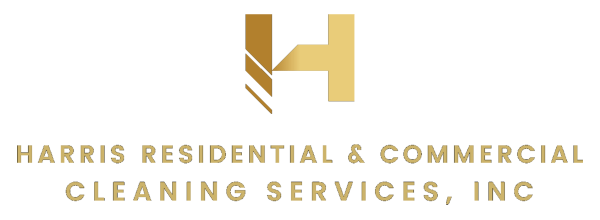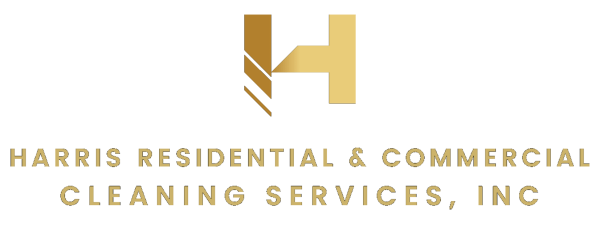
Navigating government contracting requires a thorough understanding of essential compliance steps to ensure success. Government contracting presents unique challenges and opportunities, demanding a meticulous approach to effectively meet regulatory standards and secure contracts. For businesses venturing into this realm, comprehending the compliance landscape is crucial. Government contracting involves rigorous documentation, adherence to specific guidelines, and continuous monitoring of compliance requirements.
Each stage, from bid preparation to contract execution, involves distinct compliance considerations that must be managed carefully. To thrive in government contracting, companies must familiarize themselves with federal regulations and implement robust internal processes to maintain adherence. Mastering these essential compliance steps can significantly enhance a company’s ability to compete and succeed in government contracting.
Understanding Government Contracting Regulations
Understanding government contracting regulations is fundamental for any business aiming to secure and execute government contracts. These intricate regulations cover a wide range of legal and procedural requirements designed to ensure fairness, transparency, and accountability. Key regulations include the Federal Acquisition Regulation (FAR), which outlines the rules for acquiring goods and services, and the Defense Federal Acquisition Regulation Supplement (DFARS), specific to defense contracts.
Compliance with these regulations involves staying updated on frequent amendments and understanding specific clauses relevant to each contract. Businesses must also be aware of socio-economic regulations, such as those favoring small businesses or veteran-owned firms. Thorough knowledge of these regulations ensures that bids are compliant, helps avoid legal pitfalls, and facilitates smoother contract execution. Effective navigation of these regulatory frameworks also enhances a company’s credibility and reliability in the competitive landscape of government contracting.
Preparing for Government Contract Opportunities
Preparing for government contract opportunities is crucial for businesses aiming to thrive in this competitive sector.
- Conduct Market Research: Identify potential opportunities and understand the needs of government agencies.
- Craft a Strong Capability Statement: Highlight your strengths, past performance, and unique qualifications.
- Register in Key Databases: Ensure your business is listed in the System for Award Management (SAM) and Dynamic Small Business Search (DSBS).
- Build Relationships: Network with critical stakeholders and attend relevant government contracting events.
- Develop a Robust Proposal Strategy: Align your proposal with government requirements and showcase your value proposition.
By taking these steps, you can effectively prepare for government contract opportunities and increase your likelihood of success.
Meeting Documentation and Reporting Requirements
Meeting documentation and reporting requirements is a critical aspect of government contracting that ensures compliance and transparency throughout the contract lifecycle. Government contracts often involve stringent documentation demands, including detailed proposals, performance reports, and financial records. Accurate and timely submission of these documents is essential to demonstrate compliance with contractual terms and regulatory standards.
Key documents include the Statement of Work (SOW), Contract Data Requirements List (CDRL), and progress reports, each serving specific purposes in tracking contract performance and deliverables. Regular reporting may also be required to update the contracting officer on project milestones, expenditures, and any issues encountered. Businesses must implement effective document management systems to keep track of these requirements and ensure that all submissions are complete and accurate. Proper documentation supports successful contract performance and aids in audits and reviews conducted by government agencies.
Implementing Internal Compliance Controls
Implementing internal compliance controls is crucial for any business involved in government contracting.
- Develop Clear Policies and Procedures: Create detailed guidelines for managing contracts, financial transactions, and regulatory adherence to ensure consistent practices across the organization.
- Conduct Regular Employee Training: Provide ongoing education for staff on compliance requirements and best practices to ensure everyone understands their roles and responsibilities.
- Implement Robust Document Management Systems: Use practical tools for tracking and managing documentation to ensure accurate and timely reporting and reduce the risk of errors.
- Perform Periodic Internal Audits: Regularly review internal processes and controls to identify and address potential issues before they escalate.
- Establish a Reporting Mechanism: Create a system for employees to confidently report potential compliance issues or violations, encouraging a culture of transparency and accountability.
By focusing on these areas, businesses can enhance their compliance framework, mitigate risks, and maintain a strong reputation in government contracting.
Navigating Contract Modifications and Renewals
Navigating contract modifications and renewals is a vital aspect of managing government contracts. It requires a clear understanding of the processes involved in amending or extending existing agreements. Contract modifications may be necessary due to changes in project scope, budget adjustments, or alterations in regulatory requirements.
To handle these modifications effectively, businesses must communicate openly with the contracting officer, ensure all changes are documented and justified, and understand how modifications impact contract terms and deliverables. For contract renewals, timely submission of renewal requests and demonstrating continued capability and performance are crucial. Businesses should also review the terms of renewal clauses and prepare to address any evolving requirements or performance issues. Proper management of modifications and renewals helps ensure contract continuity, avoids disruptions, and maintains positive relationships with government agencies.
Monitoring and Auditing Compliance Practices
Monitoring and auditing compliance practices ensure your business adheres to regulatory requirements and internal policies throughout the government contracting process. By implementing effective monitoring and regular auditing, you can proactively identify and address potential issues before they escalate, ensuring smooth and compliant contract execution. This ongoing vigilance helps maintain your company’s integrity, enhances performance, and fosters trust with government agencies.
- Regular Performance Reviews: Continuously assess contract deliverables and performance metrics to ensure they meet required standards.
- Financial Audits: Conduct periodic financial records and transaction reviews to verify accuracy and compliance with contract terms.
- Regulatory Compliance Checks: Stay updated on regulatory changes and assess their impact on current contracts and processes.
- Issue Identification: Proactively identify potential compliance issues or discrepancies through routine monitoring.
- Corrective Actions: Implement and document corrective measures for any identified issues to maintain compliance and improve practices.
By prioritizing these practices, you can enhance your company’s compliance and operational efficiency, ensuring long-term success in government contracting.
Mastering government contracting regulations is crucial for any business seeking success in this competitive field. Understanding and adhering to these regulations, from preparation and documentation to internal controls and contract management, can significantly impact your ability to secure and manage government contracts effectively.
If you need assistance with compliance, documentation, or any aspect of the government contracting process, consider contacting Harris Cleaning Services at (919) 770-7308. Their expertise can help ensure your business stays on track with all regulatory requirements and performs optimally. Don’t let the complexities of government contracting hold you back—contact Harris Cleaning Services today to streamline your contracting processes and boost your success.

